These ten individuals represent some of the most significant religious figures in American history. From George Washington’s leadership influenced by his Anglican faith to Martin Luther King Jr.’s profound impact as a Baptist minister and civil rights leader, their contributions have left an indelible mark on the nation. Their beliefs and actions have shaped American society, inspired movements, and fostered a rich religious tapestry that continues to influence and shape the United States today.
1. George Washington (1732-1799)
George Washington, the first President of the United States, remains an iconic figure in American history. Born in 1732, he played a pivotal role in the nation’s founding and its subsequent development. While Washington’s religious beliefs are often debated, he was a devout Anglican who attended church regularly. His faith influenced his character and leadership, emphasizing values such as integrity, humility, and duty. Washington’s leadership during the Revolutionary War, his commitment to the principles of liberty and justice, and his willingness to relinquish power after his presidency set a precedent for future leaders. His religious convictions and moral compass guided his actions, leaving an enduring legacy as a symbol of leadership and virtue in the American narrative.

2. Martin Luther King Jr. (1929-1968)
Martin Luther King Jr., an influential civil rights leader, left an indelible mark on American history. Born in 1929, King was a Baptist minister who became the face of the nonviolent civil rights movement in the 1950s and 1960s. Inspired by his Christian faith, he advocated for racial equality, justice, and peace. King’s powerful oratory skills and his famous “I Have a Dream” speech became rallying cries for equality and ignited a nationwide movement. He led impactful campaigns, including the Montgomery Bus Boycott and the March on Washington, challenging systemic racism and discrimination. Tragically, King’s life was cut short in 1968, but his legacy as a tireless advocate for justice, his commitment to nonviolence, and his unwavering belief in the power of love and equality continue to inspire generations and shape the ongoing struggle for civil rights.
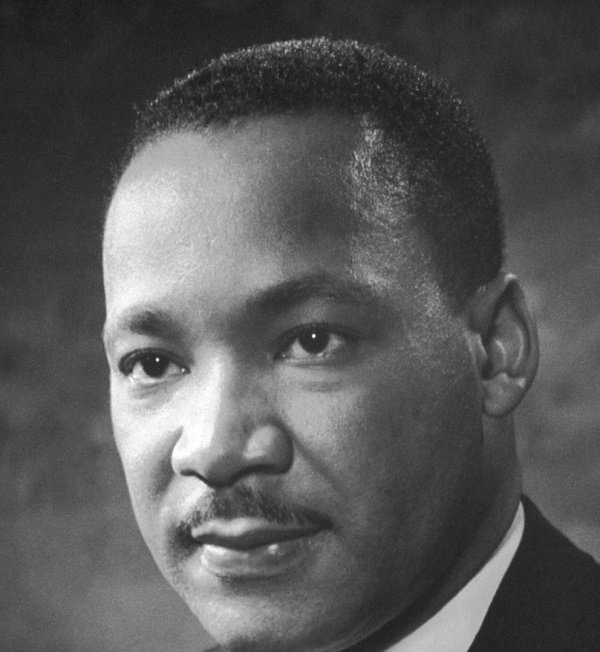
3. Billy Graham (1918-2018)
Billy Graham, a prominent American evangelist, made an indelible impact on religious life in the United States. Born in 1918, he preached the Gospel to millions of people worldwide, becoming one of the most influential evangelists of the 20th century. Through his charismatic speaking style and use of media, Graham spread his message of faith, hope, and redemption to diverse audiences. His evangelical crusades, including the historic 1949 Los Angeles revival, drew immense crowds and led to numerous conversions. Graham’s influence extended beyond his preaching, as he advised presidents and served as a spiritual counselor to many. He also played a significant role in the rise of the modern evangelical movement. Graham’s legacy as a unifying force in American Christianity, his commitment to spreading the Gospel, and his unwavering faith continue to inspire believers around the world.
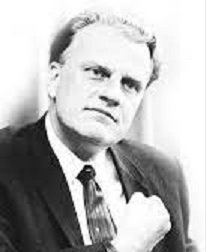
4. Susan B. Anthony (1820-1906)
Susan B. Anthony, a prominent figure in the women’s suffrage movement, left an enduring impact on American history. Born in 1820, Anthony dedicated her life to advocating for women’s rights, including the right to vote. Motivated by her Quaker faith and the belief in equality and justice, she tirelessly fought for gender equality in all aspects of society. Anthony co-founded the National Woman Suffrage Association and played a crucial role in organizing protests, delivering speeches, and lobbying for women’s rights. Despite facing significant opposition and setbacks, she remained steadfast in her mission, becoming an inspirational figure for generations of women activists. Anthony’s tireless efforts and unwavering dedication eventually led to the ratification of the 19th Amendment, granting women the right to vote in 1920. Her legacy as a trailblazer and champion of women’s rights continues to inspire those fighting for equality today.
See also: 20 Largest churches in America
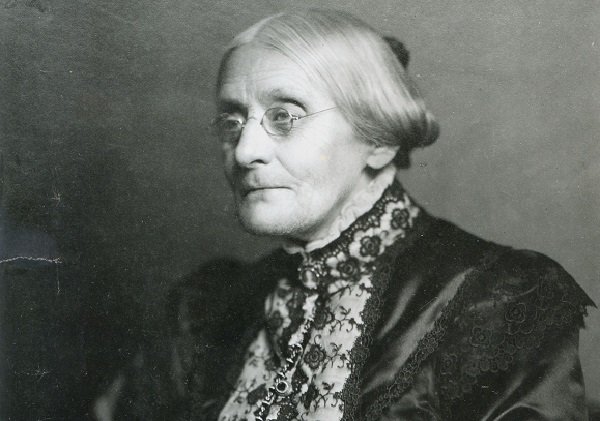
5. Brigham Young (1801-1877)
Brigham Young, a key figure in American religious history, played a pivotal role in the expansion and establishment of the Latter-Day Saint movement in the United States. Born in 1801, Young became the second president of The Church of Jesus Christ of Latter-day Saints after the death of its founder, Joseph Smith. Under his leadership, Young guided thousands of Mormon pioneers on a treacherous journey to the Salt Lake Valley, establishing a thriving religious community in what is now Utah. Known for his organizational skills, vision, and commitment to the principles of his faith, Young played a vital role in shaping the religious and cultural landscape of the American West. His leadership and contributions to the Mormon faith left a lasting impact, and his legacy as a religious pioneer continues to be revered by members of the Latter-day Saint community today.
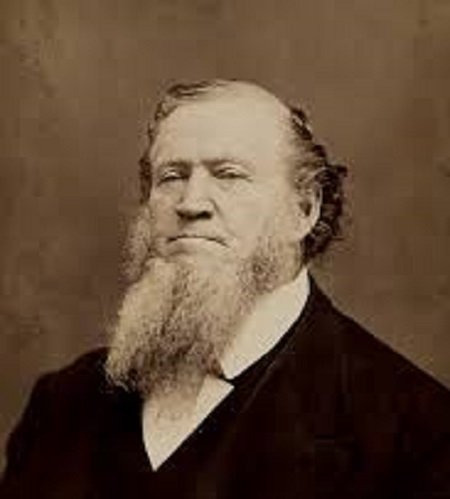
6. Dorothy Day (1897-1980)
Dorothy Day, a prominent Catholic social activist, left an enduring impact on American history. Born in 1897, she co-founded the Catholic Worker Movement, which sought to address the social injustices of the time. Day’s unwavering commitment to social justice and her strong Catholic faith guided her work. She advocated for the rights of the poor and marginalized, promoting nonviolence, voluntary poverty, and solidarity. Through the Catholic Worker newspaper and her activism, Day called attention to issues such as homelessness, workers’ rights, and pacifism. Her tireless efforts to create a more just and compassionate society resonated with many, and her legacy continues to inspire individuals and communities working toward social change. Day’s integration of her faith with social activism remains a powerful example of how one’s beliefs can shape and inform efforts to create a more equitable world.
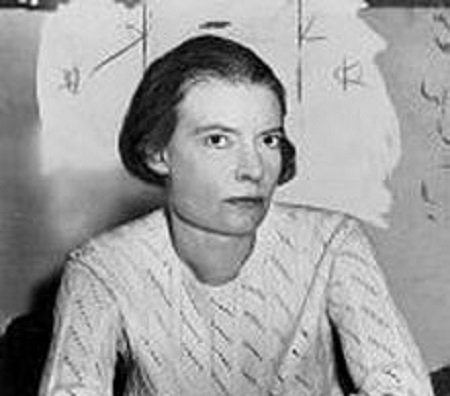
7. Jonathan Edwards (1703-1758)
Jonathan Edwards, an influential figure in American religious history, made significant contributions to theological thought during the Great Awakening. Born in 1703, Edwards was a Congregationalist preacher known for his powerful sermons and writings. His most famous sermon, “Sinners in the Hands of an Angry God,” emphasized the need for personal conversion and the consequences of sin. Edwards’ theological ideas centered on the sovereignty of God and the importance of divine grace in salvation. His works, such as “The Nature of True Virtue” and “Freedom of the Will,” had a profound impact on American religious thought and helped shape the development of Calvinist theology in America. Edwards’ legacy as a theologian and his passionate preaching continues to influence religious discourse and inspire individuals to contemplate their spiritual lives
You may also like: 11 Most Famous Last Words Uttered by Legendary Americans
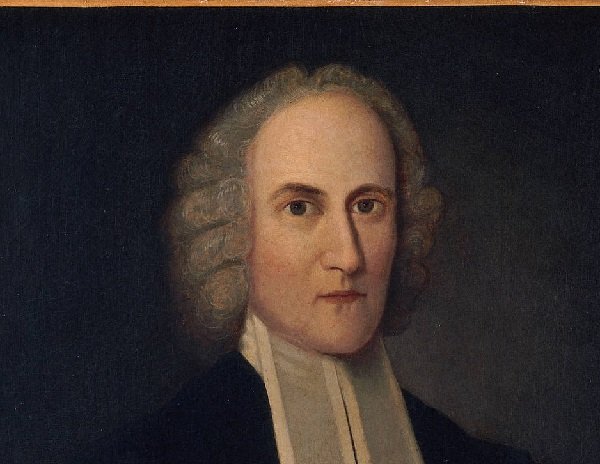
8. Sojourner Truth (1797-1883)
Sojourner Truth, born in 1797, was a remarkable figure in American history and an influential advocate for both abolition and women’s rights. Born into slavery as Isabella Baum free, she later changed her name to Sojourner Truth after gaining freedom. Truth’s Christian faith played a central role in her activism, as she believed that God called her to speak out against injustice. Her powerful speeches, such as “Isn’t I a Woman?” challenged societal norms and highlighted the intersectionality of gender and race in the struggle for equality. Truth’s unwavering commitment to truth, justice, and equality made her a prominent voice in the abolitionist movement. She was also an advocate for women’s suffrage, recognizing the importance of gender equality in the fight for justice. Sojourner Truth’s legacy as a fearless and inspiring activist continues to inspire and empower marginalized communities today.

9. Reinhold Niebuhr (1892-1971)
Reinhold Niebuhr, a theologian and political philosopher, made profound contributions to American intellectual and religious discourse. Born in 1892, Niebuhr’s writings and teachings explored the moral complexities of society and the intersections of faith and politics. His influential work, “The Nature and Destiny of Man,” addressed the human condition, the need for humility, and the limitations of human power. Niebuhr’s concept of “Christian realism” emphasized the tension between the ideal and the practical in the pursuit of justice. He engaged with issues such as social justice, war, and the ethics of power, leaving a lasting impact on political and theological thought. Niebuhr’s ideas resonated with leaders across the ideological spectrum, influencing figures like Martin Luther King Jr. and Barack Obama. His intellectual legacy continues to shape discussions on ethics, power, and the role of religion in public life.
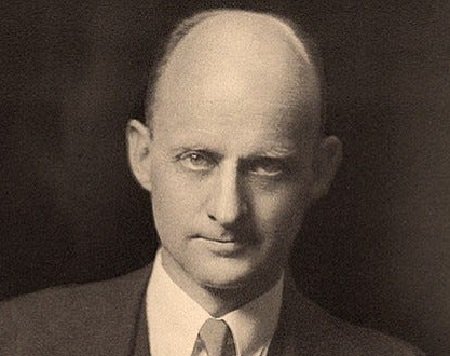
10. Thomas Merton (1915-1968)
Thomas Merton, a Trappist monk, writer, and mystic, left an indelible mark on American religious and literary landscapes. Born in 1915, Merton’s spiritual journey and contemplative writings continue to inspire seekers of all faiths. His autobiography, “The Seven Storey Mountain,” chronicled his path to Catholicism and became a spiritual classic. Merton’s exploration of Eastern spirituality and interfaith dialogue made him a pioneer in the pursuit of religious unity. His writings on social justice and peace, such as “Seeds of Destruction” and “Peace and Solitude,” reflected his deep concern for the world’s suffering and the need for compassionate action. Merton’s tragic death in 1968 cut short a life dedicated to contemplation and engaged spirituality. His legacy as a profound spiritual writer and advocate for peace continues to influence generations, fostering a deeper understanding of the human experience and the quest for spiritual awakening.

Conclusion
In conclusion, the contributions of the most important religious Americans in US history have been profound and transformative. Their dedication to religious freedom, social justice, and humanitarian causes has shaped the nation’s identity and values. Through their leadership, activism, and literary works, they have challenged social norms, fought against discrimination, and advocated for equality. Their influence extends beyond their respective religious communities, inspiring individuals from all walks of life. Their legacies serve as reminders of the power of faith, compassion, and the pursuit of a more inclusive and just society. The impact of these religious Americans continues to resonate and shape the United States to this day.
